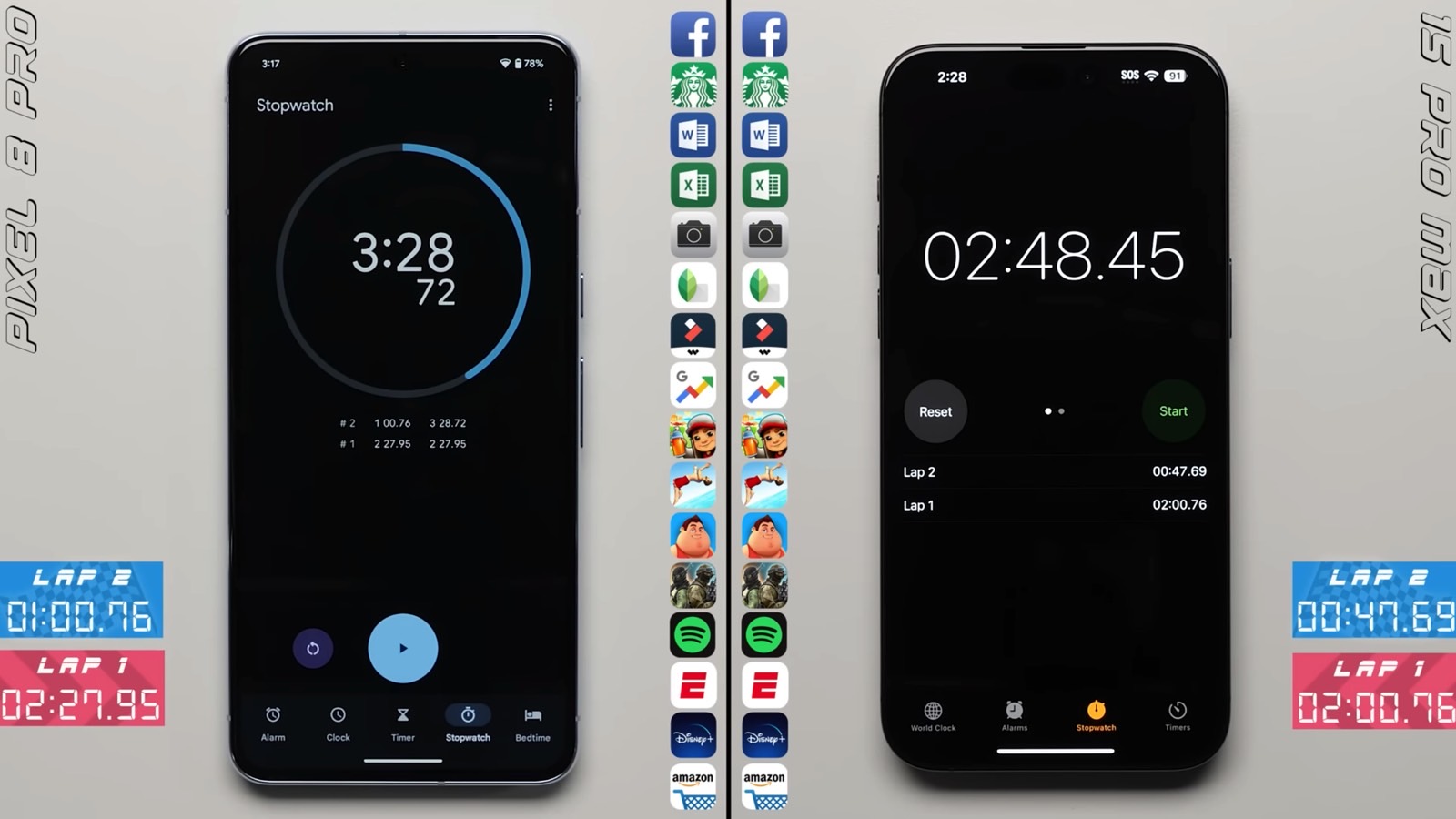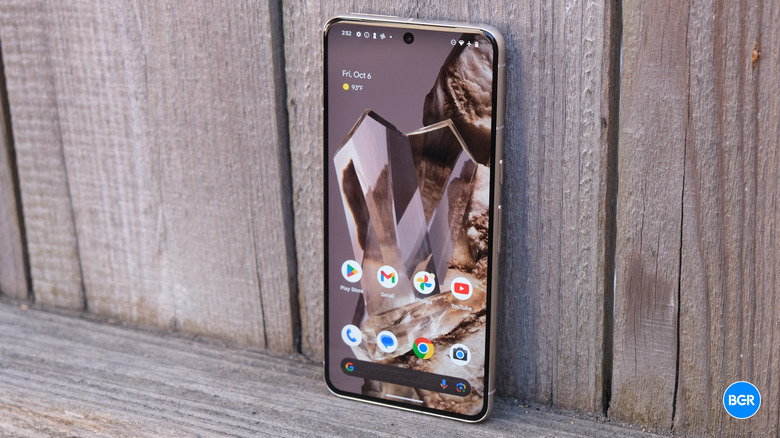Pixel 8 Pro Vs. iPhone 15 Pro Max Speed Test Has Me Worried About Google's Latest Promise
With every new flagship smartphone's arrival, we get the usual benchmark and real-life speed tests. The latest iPhone typically wins these comparisons, as the Android camp has yet to catch up to Apple's A-series chips. The A17 Pro in the iPhone 15 Pro and 15 Pro Max is even more formidable. It's the only 3nm mobile chip in the industry, and the only one that can handle console-grade games.
When it comes to comparing the latest Pixels to the iPhone 15, I knew ahead of time that Google had no chance of matching Apple's performance. Yes, there's a new Tensor G3 chip inside the Pixel 8 and Pixel 8 Pro. But there's no chance for it to match, let alone outperform, the A17 Pro.
That sort of performance gap would be perfectly normal for any other Pixel generation. But there is something different about the Pixel 8 phones. Google promised during its launch event that it'll deliver 7 years of Android updates to the Pixel 8 series. That's an incredibly bold claim, something that not even Apple promises for its iPhones.
After seeing the real-life speed test below, I'm worried that the Pixel 8 series is not equipped to last seven years.
I've covered plenty of PhoneBuff's speed tests because they have a more professional approach than most others, delivering a sort of "standard" performance test. It's still not scientific, but it's as close as I've seen anyone get.
The YouTuber aims to replicate the way we use smartphones. We open all sorts of apps on our handsets and switch between them. Some of the apps are more demanding, like games and video editing apps. Others are simple web apps or streaming apps.
PhoneBuff puts the phones through two rounds of tests. The first looks at how fast the phones can open the same set of apps. The second looks at how well the phones keep apps loaded in memory. This helps with determining how well a phone will multitask.
If you've seen such speed tests, you probably know the Pixel 8 Pro has no chance against the iPhone 15 Pro Max. The iPhone wins the first lap by a huge margin, finishing 27 seconds before the Pixel 8 Pro. The latter then lost an additional 13 seconds in the second lap despite rocking more memory (12GB vs 8GB).

That's a sizable 40-second gap between the two handsets. What that means for Pixel 8 buyers is that they'll spend more time loading apps than iPhone 15 Pro users. Sure, they won't be able to tell the difference unless they use both phones in similar scenarios. And the Pixel 8 Pro will deliver a fast performance, there's no question about that.
That said, PhoneBuff's real-life speed test proves that Google is far behind Apple when it comes to custom chip performance. The Pixel series definitely can't run console games like the iPhone, which is a huge advantage for Apple.
The iPhone 15 Pros also look like phones that are better equipped for the future. Apple will surely support the handsets for many years to come, but that's only because the A17 Pro offers Apple that freedom.
As for the Pixel 8 series, I already said that Google's 7-year Pixel software update promise might be misleading. That was because Google has begun differentiating the Pixel 8 and Pixel 8 Pro despite the handsets featuring similar specs.
When you factor in the Tensor G3 performance, you realize it might be hard for Google to keep that promise. I mean, sure, Google can try to optimize the basic Android experience so Android 21 can still run on the Pixel 8 phones. But the Tensor G3 might be a real bottleneck to bringing exciting new features to the Pixel 8. Or a good excuse for Google not to do it, and instead steer Pixel owners toward hardware upgrades.
This is all speculation, of course. But remember how well the Pixel 6 Pro behaved in these tests compared to the iPhone 13 Pro Max a couple of years ago? Or how close the Galaxy S23 Ultra is to the iPhone 15 Pro Max? The Pixel 8 Pro is nowhere near as impressive.
